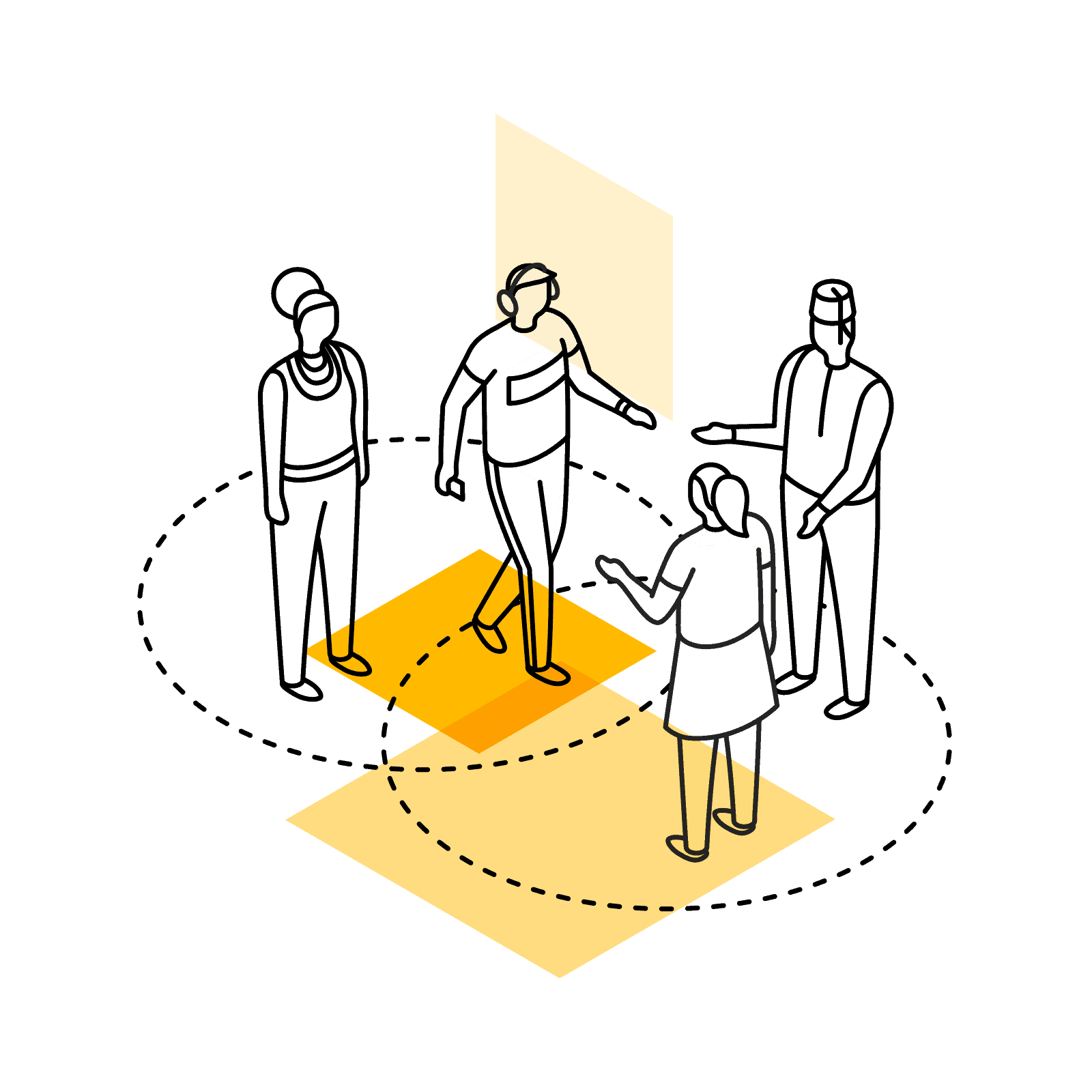We strive to enable people, especially at times of transition or in situations of vulnerability, to choose their own life pathway and envisage their future, according to their aspirations, resources and potential. We help equip them to access and create opportunities, with skills, dynamism and reciprocity, while guiding them towards independence, personal well-being and the well-being of their communities. As part of this drive for change, we collaborate with institutions and organisations, and recognise the strength of local alliances that decide to develop educational and social responses in Italy and around the world, to build generative communities and an inclusive, cohesive, attractive and sustainable local fabric. The aim is to enable people to live with peace of mind, in an occupation that ensures dignity, recognition and the possibility of fulfilment, with access to education to help them be well-informed, responsible citizens, in a process of continuous, intercultural and intergenerational learning.
This is our commitment to building the future of a fairer, more cohesive society and contributing to the achievement of national and international Sustainable Development Goals.
The United Nations Agenda 2030 provides us with guidance on improving the quality of life of individuals and communities, while prompting us to reflect on the closely interconnected and cross-cutting nature of the Sustainable Development Goals.
The European Pillar of Social Rights provides our reference framework for welfare actions, alongside other European plans, such as the European Education Area, the Digital Education Action Plan, the European Child Guarantee, aimed at vulnerable children, the sustainable housing plan and the European Just Transition Mechanism.
The continued existence of spaces and projects supported by Italy’s National Recovery and Resilience Plan (PNRR) is one of the challenges we intend to address in our interaction with public institutions and third-sector bodies involved in renovating and managing social spaces. We will help ensure that these spaces continue to serve as civic and welfare centres by mobilising resources to manage them, offering governance skills and models, and enabling access to facilitated financial instruments.
The People Goal pursues the Foundation’s strategy through various methods, approaches and features that are common to the work of its five Missions, to address the multiple and interconnected crises our society is experiencing and that give rise to inequalities, polarisation, discrimination and exclusion of specific groups of people, loss of opportunity and choice, difficulty in aspiring to adequate life trajectories, citizenship and personal and community well-being.
In line with the FCSP’s Multi-Year Planning Document 2025-2028, the People Goal fosters local alliances by means of a multi-dimensional, inter-institutional, inter-sectional and systemic approach based on joint responsibility. This enables us to respond to the social and educational phenomena facing communities and to foster welfare and education in such a way as to facilitate access to citizenship rights and opportunities, and reduce inequalities.
We work in contexts characterised by rapid, continuous and sometimes unpredictable change, and we strive to ensure that the people and organisations we work with can deal with moments of change, transition and crisis with greater awareness, while retaining the ability to imagine the future with more preparation, peace of mind and solidarity towards others.
We value hybrid professionals, promote their recognition and aim to enhance their skills. We take a similar approach to welfare and education professionals, by promoting their well-being, alongside the well-being of people who take on caring roles, often informally and without recognition.
We strive to ensure that social, educational and socialisation services can operate continuously all the year round, without interruptions or reduced timetables, even during the summer season, and we offer solutions to make them more consistent with the new life/work balances.
We support inter-generational exchange as an essential vehicle for fostering interaction and countering the segregation of people and communities,
while valuing its impact as a tool for social protection and a driver of dialogue and community cohesion. Building on the experience we have gained in recent years, we promote alliances with business, in their capacity as important, pro-active partners in social, educational and community development interventions.
We will boost the effectiveness of our action through advocacy aimed at changing narratives, countering stigma and prejudice, raising people’s awareness and encouraging them to participate in initiatives.
The People Goal helps FCSP make the most productive use of its assets, in line with the key principles, thematic priorities and cross-cutting methodologies set out in the Multi-Year Planning Document 2025-2028.
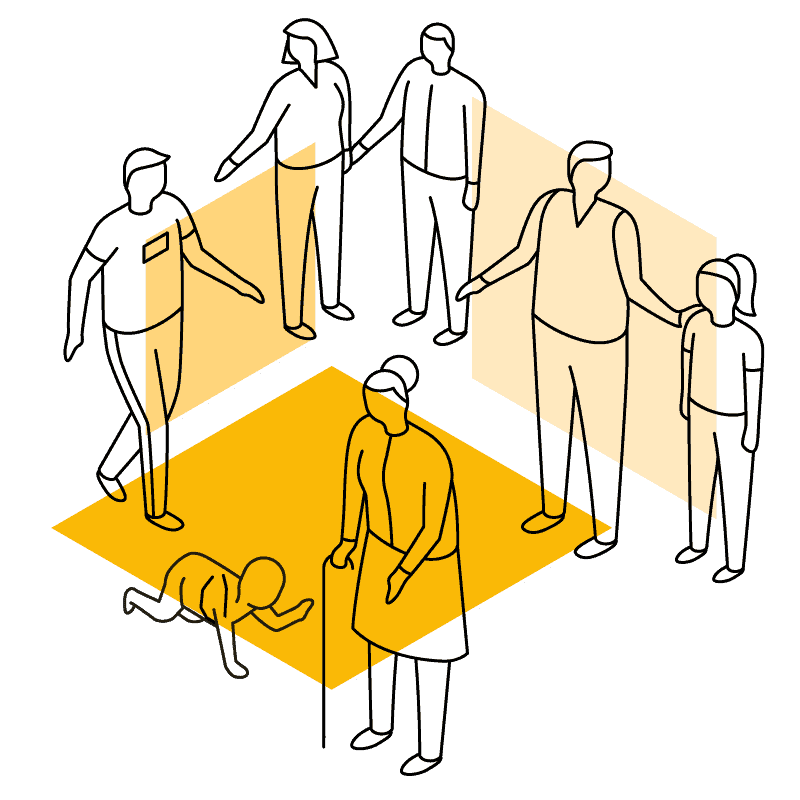
Trust, risk and flexibility
We are committed to promoting stable, competent local alliances based on trust between all the bodies involved. Flexibility will be a guiding principle in our development of transformational and system-oriented projects and processes. Some of our actions will be highly experimental and will therefore involve a degree of risk, requiring us to accept that some of the operations we promote may be only partly successful, in the knowledge that they will also offer considerable learning potential.
Cross-cutting methodologies
Our determination to forge new sustainable and competent local alliances presents an opportunity to mobilise resources and expertise and empower partnerships that maximise the impact of transformational processes. Our keen appetite for experimental projects enables us to reap maximum value from advocacy processes, by sharing the results that we obtain and transforming the positive ones into useful models for new policies.
We will promote processes to change the narrative around important social issues that are currently under-explored or cause polarisation.
We support skills-building and empowerment pathways, as well as valuing data culture, evidence sharing and a model of continuous learning appropriate to a learning organisation.
Thematic priorities
Processes of countering and reducing inequalities are undertaken with a close eye on the effects they could have on the development of the catchment area, and with an emphasis on the interconnection between these two issues. Enhancing people’s professional and individual skills, devising sustainable mechanisms for improving young people’s access to housing, and promoting quality welfare and educational services can have positive effects on individuals and the places they live in.
Conversely, this close interconnection makes it necessary to consider all the positive and negative effects that the digital, energy and environmental transition – which we have supported in the past and are preparing to support in the future – may have on the most vulnerable communities and population groups.
The two speeds
An impact-driven approach is also the hallmark of other, more experimental activities, such as redesigning and redeploying buildings for education, urban regeneration initiatives, investment in spaces and other aspects of the prison system, projects on micro-credentials and digital career coaching platforms that help match supply and demand in the labour market.
Equipping people – including those who are vulnerable or facing hardship – to shape their own future is a goal we aim to achieve and translate into five missions that work in synergy and share tools and projects.
Reinventing dwelling systems
and regenerating neighbourhoods
We respond to emerging and evolving needs by supporting social housing and road-testing replicable new tools and models for promoting the affordability and sustainability of housing. The infrastructural, housing, socio-cultural and neighbourly support dimensions of the urban regeneration projects we promote represent an opportunity to transform the local area according to principles of social and environmental sustainability.
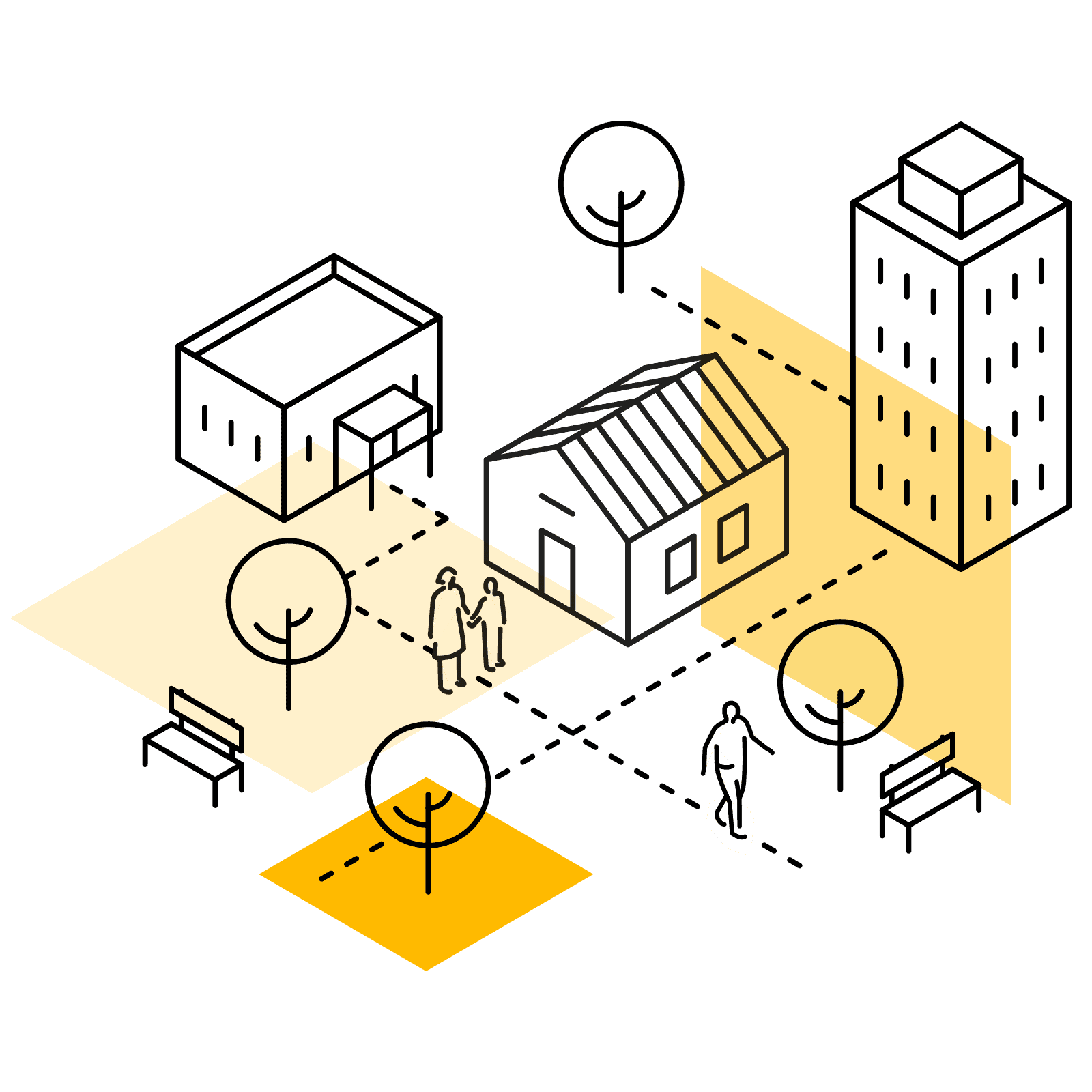
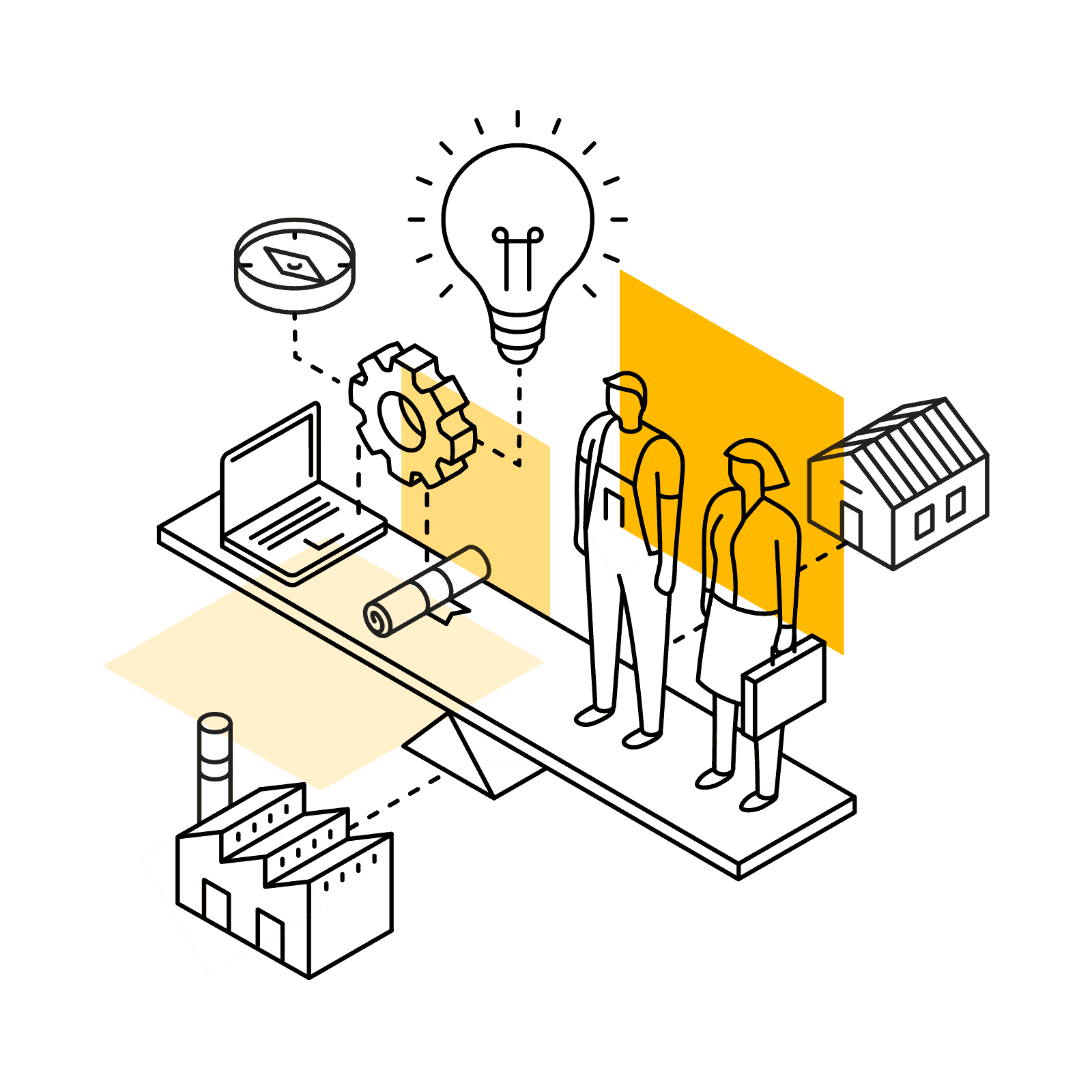
Promoting
decent work
We guide young people and the most vulnerable members of society towards acquiring the skills they need to plan their life pathways, while also helping them play an active role in building their future and promoting a positive, well-informed work culture.
Strategic alliances aimed at innovation and identifying integrated, systemic responses play a key role in increasing fair participation in the labour market, fostering social inclusion and promoting the development of the catchment area.
Educating for
collective development
We help ensure children, teenagers and young people have the opportunity to express their full potential, with solid skills and knowledge, so that they can shape their own lives from birth, on the basis of life-long learning. We recognise and promote the value of everyone involved in educational activity, so that they become the driving force behind lasting, collective cultural change, while combating educational poverty and inequality in all its forms and promoting the development of local areas and their capacity to attract. We work with families and communities to ensure that everyone has an education based on respect, sustainability and sharing.
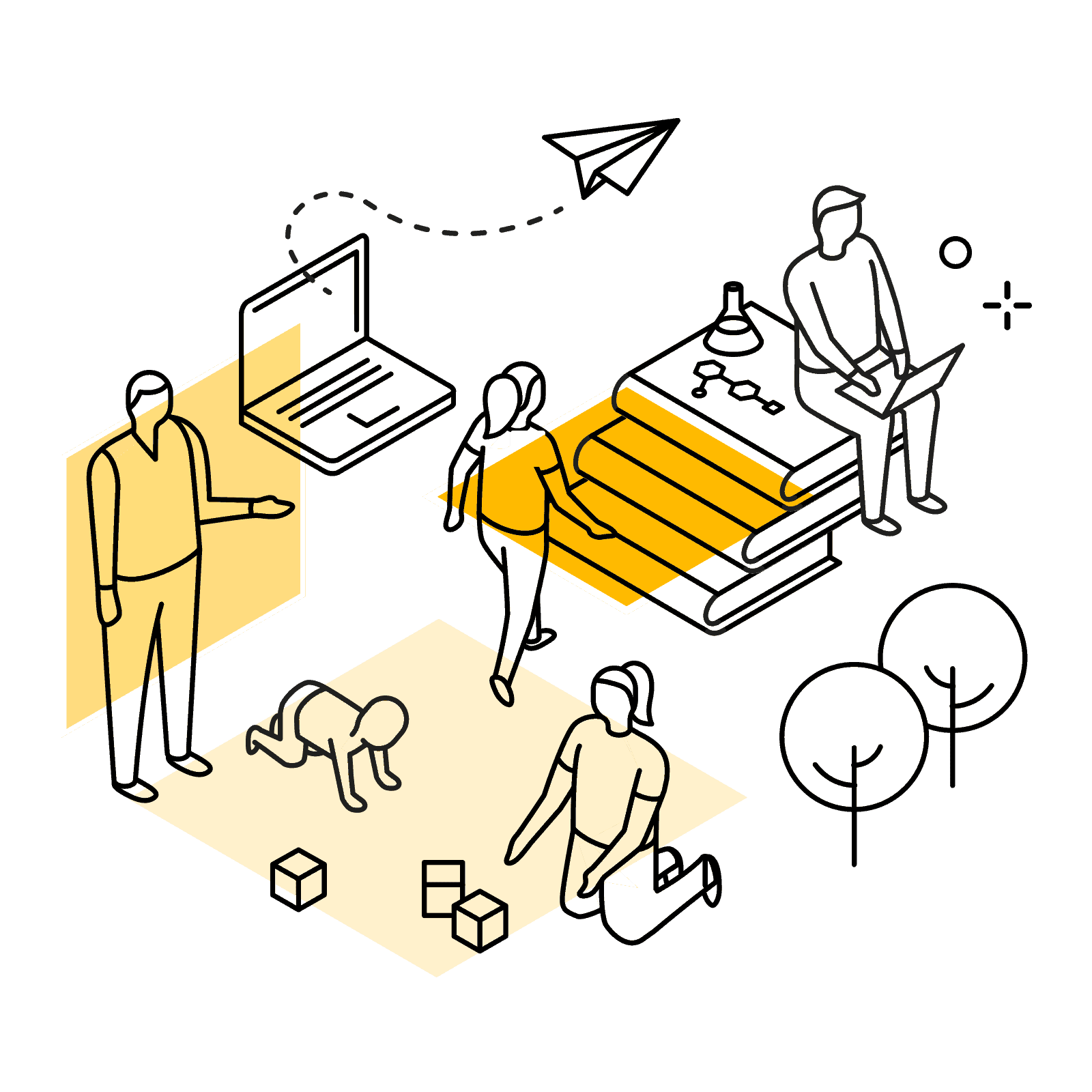
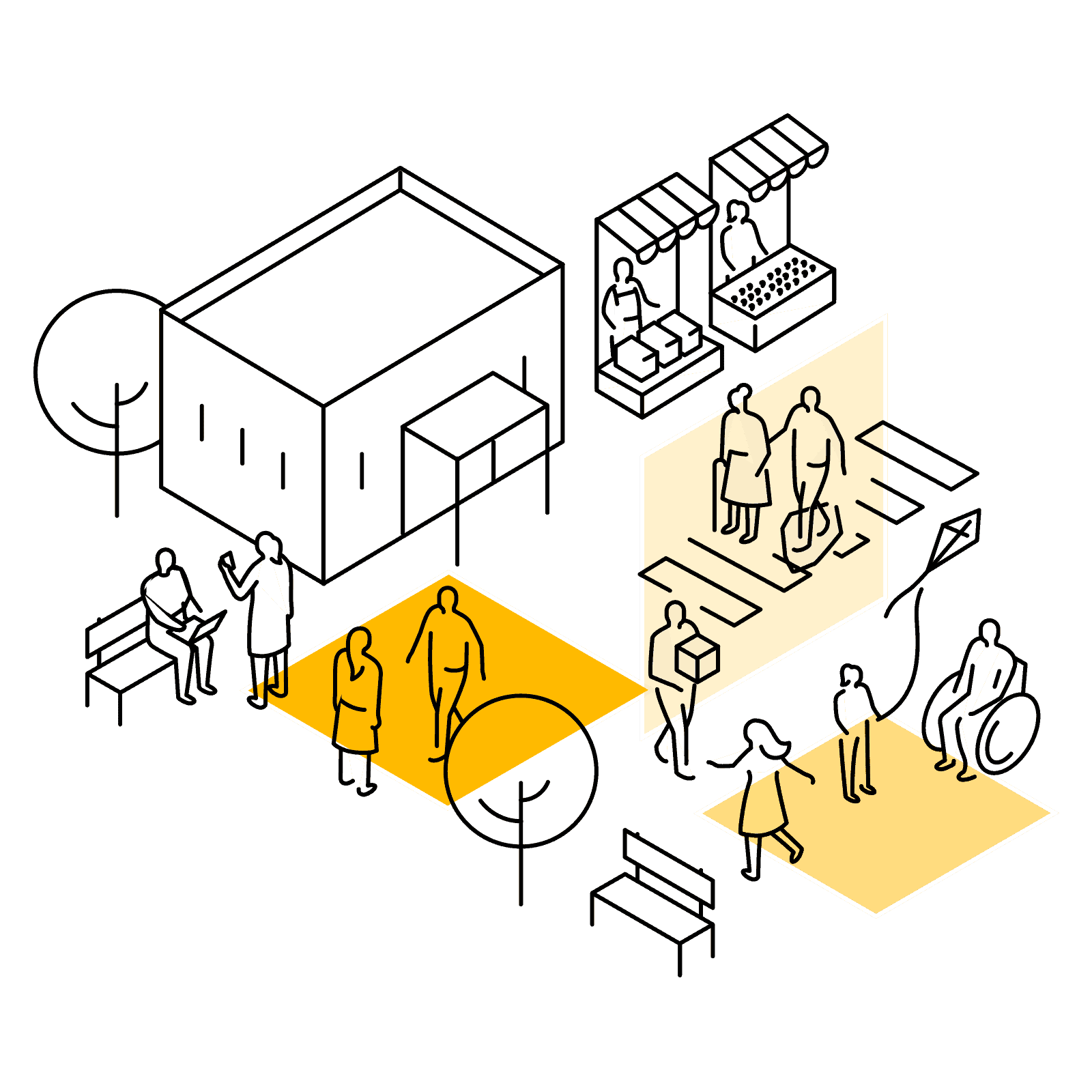
Rediscovering
community
We support the development of competent, welcoming communities, where self-determination is within everyone’s reach and everyone can contribute to collective prosperity and well-being, partly on the basis of a new vision of health and care as a common good. We contribute to combating material and relational poverty, supporting the culture of solidarity and giving, and building neighbourly support networks and forms of reciprocity and local activation that strengthen the social capital of communities.
Working together
for inclusion
Working at local, national and international level, we help build cohesive communities, capable of embracing and valuing diversity, so that everyone, including the most vulnerable people, has access to rights and opportunities. Together we promote pathways of support, empowerment and active participation, with a particular emphasis on guiding young people, migrants and women towards independence and full citizenship. Combating inequalities and preventing all forms of exclusion are the starting point for our contribution to shared and lasting social change and the sustainable development of the local areas in which we operate, with a view to fostering peace and solidarity.
